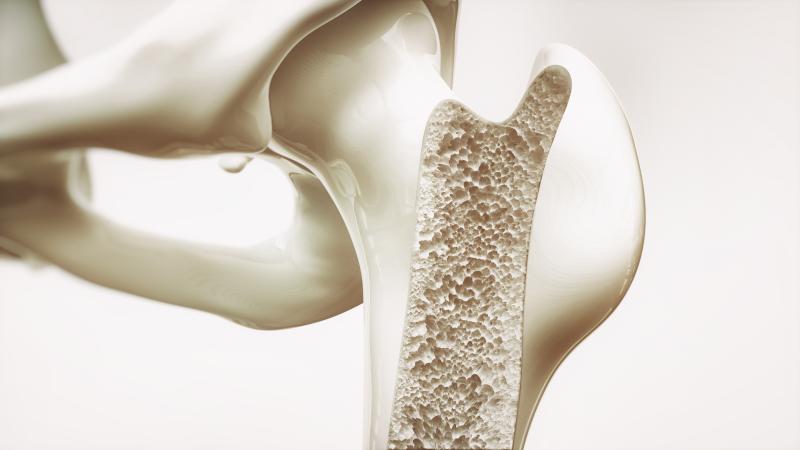
Use of liraglutide in patients with type 2 diabetes (T2D) does not appear to have any effect on bone resorption, even preserving bone mineral density (BMD) despite weight loss, as shown in a study.
Researchers randomized 60 patients with T2D to receive liraglutide 1.8 mg daily or placebo for 26 weeks. Half of the participants were women, and mean ages were 62 and 64 years in the liraglutide and the placebo groups, respectively. Mean body weight was 98.2 and 91.6 kg, respectively, while HbA1c was 50 mmol/mol in both groups. However, those in the liraglutide group had significantly higher trabecular bone volume per tissue volume (BV/TV; p=0.03) and trabecular thickness (Tb.Th; p=0.02) at the tibia.
The primary endpoint of p-collagen I cross-linked C-terminal telopeptide (p-CTX) increased by a mean of 0.07 μg/L on liraglutide (p<0.001) and by 0.03 μg/L on placebo (p=0.04), although the changes between them were not significantly different (p=0.16).
At week 4, patients in the liraglutide group showed significant reductions in weight (p<0.001) and and p-procollagen type 1 N-terminal propeptide (P1NP; p<0.01). P-P1NP levels increased between weeks 4 and 13 (p=0.03) and remained elevated thereafter. In comparison, weight and p-P1NP did not change in patients treated with placebo.
Hip BMD decreased from baseline to end of study in the placebo group, whereas no changes were observed in patients treated with liraglutide (p=0.01 difference between groups).
The present data suggest that liraglutide may have some antiresorptive effect, according to the researchers.